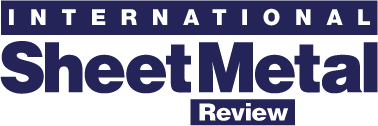
Bridging the gap
Submitted by:
Sara Waddington
Adopting an enterprise resource planning (ERP) system means a more competitive and profitable manufacturing business. Centralised ERP solutions can bridge the gap between a range of manufacturers’ systems and applications.
Cost-effectively managing a manufacturing business or discrete manufacturing business is complex, especially when it’s growing. It’s essential to have a manufacturing solution that provides real-time access to accurate business intelligence to help ensure better resource planning, scheduling and tracking, as well as supporting lean manufacturing operations. Robust, scaleable, modular tools for process, material and throughput optimisation enable manufacturers to align production goals with cash flow and profitability objectives.
Manufacturers all over the world are focusing on improving their business processes to improve operational efficiency, while keeping track of operating expenses. They want a centralised solution to manage a variety of business processes including finance and accounting, sales and marketing, and procurement and supply chain.
From engineering and planning to production and quality control, manufacturing software packages offer the tools a business needs to create ‘the best possible product in the most efficient and cost-effective manner’. These suites can be used to streamline product design and configuration; track and manage product components; automate production scheduling; accelerate the manufacturing process and improve product quality.
Enterprise Resource Planning (ERP)
ERP stands for Enterprise Resource Planning and is an information system designed to coordinate the resources, information and processes within an organisation. It comprises a common database that provides interfaces and information to every department within the business. ERP is a category of business management software—typically a suite of integrated applications—that an organisation can use to collect, store, manage and interpret data from many business activities, including product planning, purchase manufacturing or service delivery; marketing and sales; inventory management; shipping and payment.
“Cloud ERP provides enterprises with the flexibility and scalability they need to streamline their business processes and improve efficiency. Cloud ERP is one of the most important tools a company can use to stay ahead of the competition because it allows them to drive their business. It ensures the timely delivery of accurate financial information; improved financial performance; quick data-driven decisions; improved quality and inventory controls; simplified software, hardware and network infrastructure. This includes the simple adoption of common standards across plants and business units, quick integration of acquired technologies and more dependable operating performance,” commented analyst, Vantage Market Research.
ERP covers areas such as accounting (nominal ledger, fixed assets, accounts sales/purchase ledger etc.); human resources (payroll, time sheets, training etc.); manufacturing (bill of materials, QC, managing the manufacturing process etc.); supply chain (stock control, purchasing, scheduling); CRM (sales and marketing, support and customer service); project management (managing costs, time and activities) and data warehousing (document management).
To read the rest of this article in ISMR’s July/August 2022 issue, see https://joom.ag/TiCd/p42
